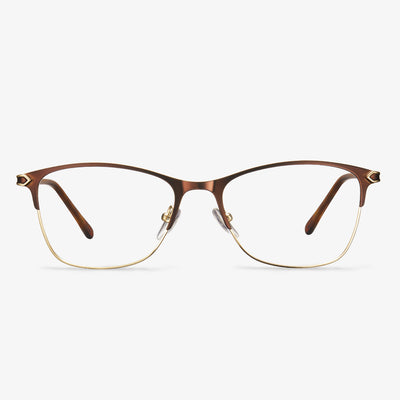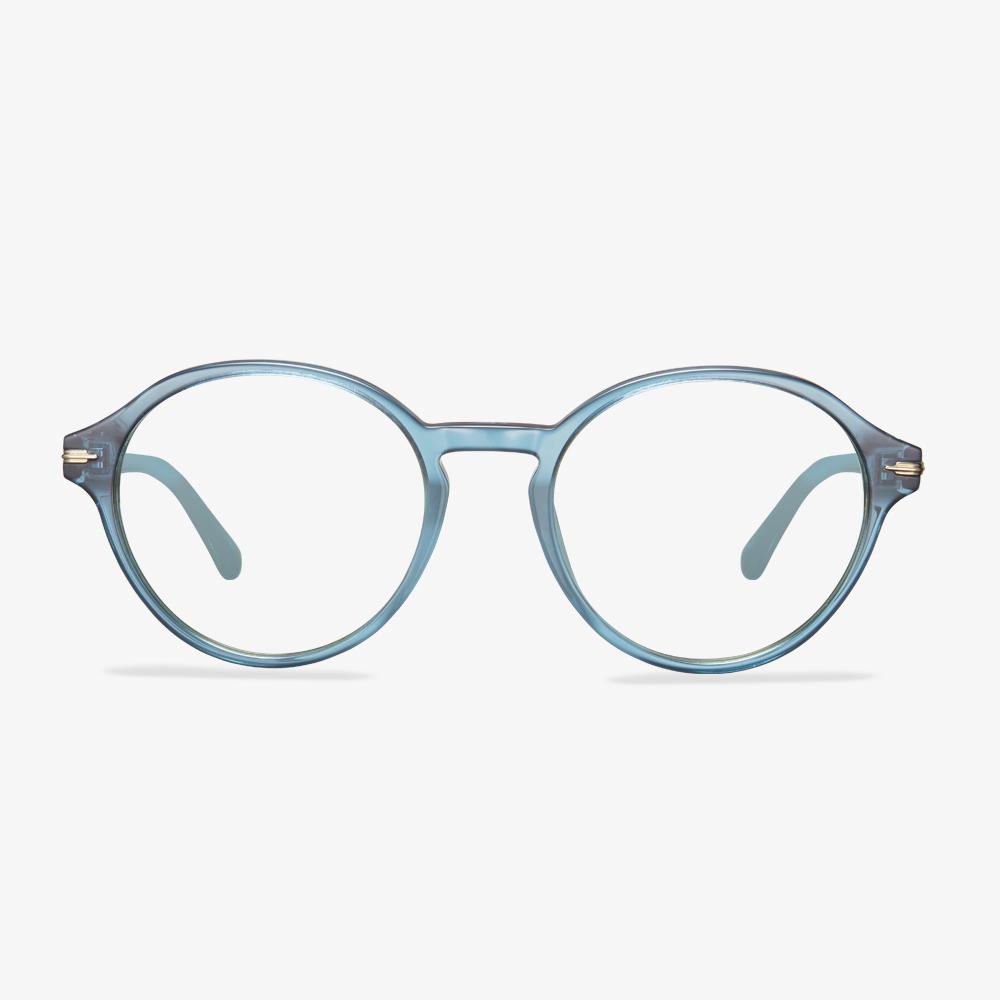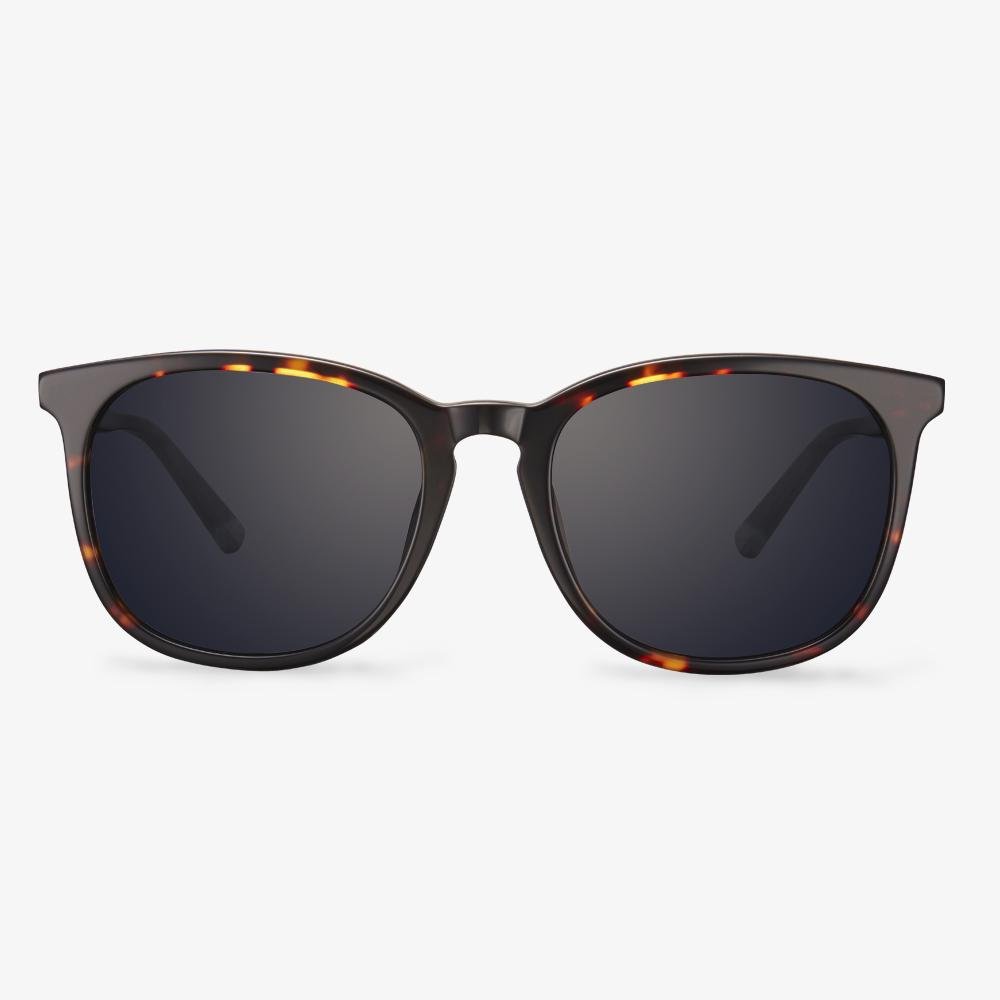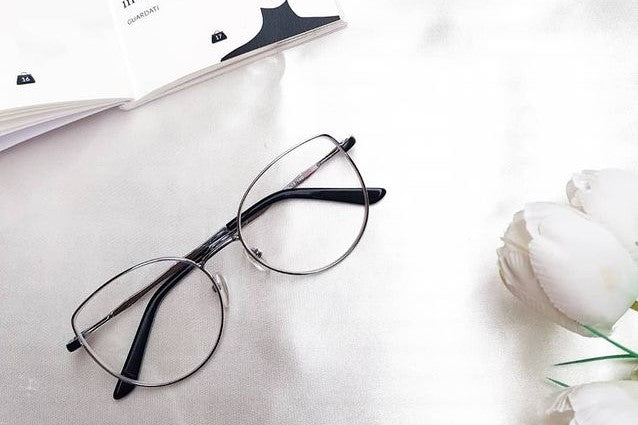Sometimes they need to be adjusted by professionals.
Some connecting parts of glasses will be loose, but some people do not care about them and make casual changes. In reality, the change of the lens frame is very technical. The distance between the lens and the glasses will affect the effective strength of the lens, so the adjusted glasses need to be 12 to 14 mm away from the eye. The optical center of the lens should be aligned with the pupil position, and the nose pad, the temples should be consistent with the contact part of the bridge of the nose and the ear, without pressure and pain. Therefore, the lens frame must be adjusted by a professional optician. Especially some special lenses (progressive multi-focus glasses) need to be repaired regularly.
How to Get Used to Progressive Lenses?
It is common that your vision may change when you are over age 40. You can find it is happening when have to hold your favorite book, the daily newspaper, or a restaurant menu farther away just to read it. This is an eye condition called presbyopia. It is normal and almost all of us get it as we reach middle age.
This eye condition often can be corrected by progressive lenses which allow you to see objects from far to near clearly. With progressive lenses, you do not have to switch your glasses to see far or near objects frequently.
However, since progressive glasses have three different prescriptions in one lens, it may be difficult for some people to adapt to the new ones. So, in this post, we will show you how to get used to progressive lenses.
Glasses may have different functional priorities.
Children's glasses focus on the treatment of eye disease, adult glasses focus on improving vision. To children with myopia, matching glasses is to improve vision really, eliminate fatigue, coordinate the muscles inside and outside of the eye, and can prevent myopia to deepen. For children, when they suffer from hyperopia, anisometropia, strabismus, amblyopia, and so on, sometimes they wear glasses to treat eye disease. It is the prerequisite for future vision improvement.
Pair Eyewear
Pair is designed for children. There are only a few styles of frames, but there are hundreds of colors and patterns on top of the frames, and the top of the frame base can change colors, from pure pink to rainbow tie-dye to NBA logos. Pair also makes limited-edition tops and works with major brands like Marvel and Harry Potter to create themed styles that allow you and your children to showcase your personality. Each frame starts at $60, including standard prescription lenses, and the frames cost $25.
What are progressive lenses?
Progressive lenses, also called progressive multifocal lenses, are lenses that have multiple focal points. If it is divided from the focal point, the lenses can be divided into single focal lenses, bifocal lenses, and multifocal lenses. The original intention of progressive multifocal lenses is to provide natural, convenient, and comfortable correction methods for presbyopia patients. A pair of glasses can see far away, close up, and mid-range objects. After wearing them, one pair of glasses is equivalent to using multiple glasses. Because of the different nature, characteristics and applicability, progressive lenses are more expensive than single vision lenses.
Target Optical
Target Optical provides easy eye care. They both deliver on the promise of expect more, pay less, combining high-quality eye care, fashion, affordability, and a simple, fun shopping experience. You can always get more for less. There are popular contact lens brands like Acuvue、CIBA and Specialty Glasses.No matter what you choose, there is an unconditional warranty.
Uvex Stealth OTG Safety Goggles
They provide more protection and coverage than other prescription safety glasses. Due to the full seal around the eye, these OTG safety goggles prevent chemical splashes, and bumps, and scratches, making them wonderful general-purpose safety goggles to wear over your prescription glasses. Dura-Streme's scratch-resistant coating helps keep the lenses crystal clear, which is especially important when wearing the underlying glasses.














































